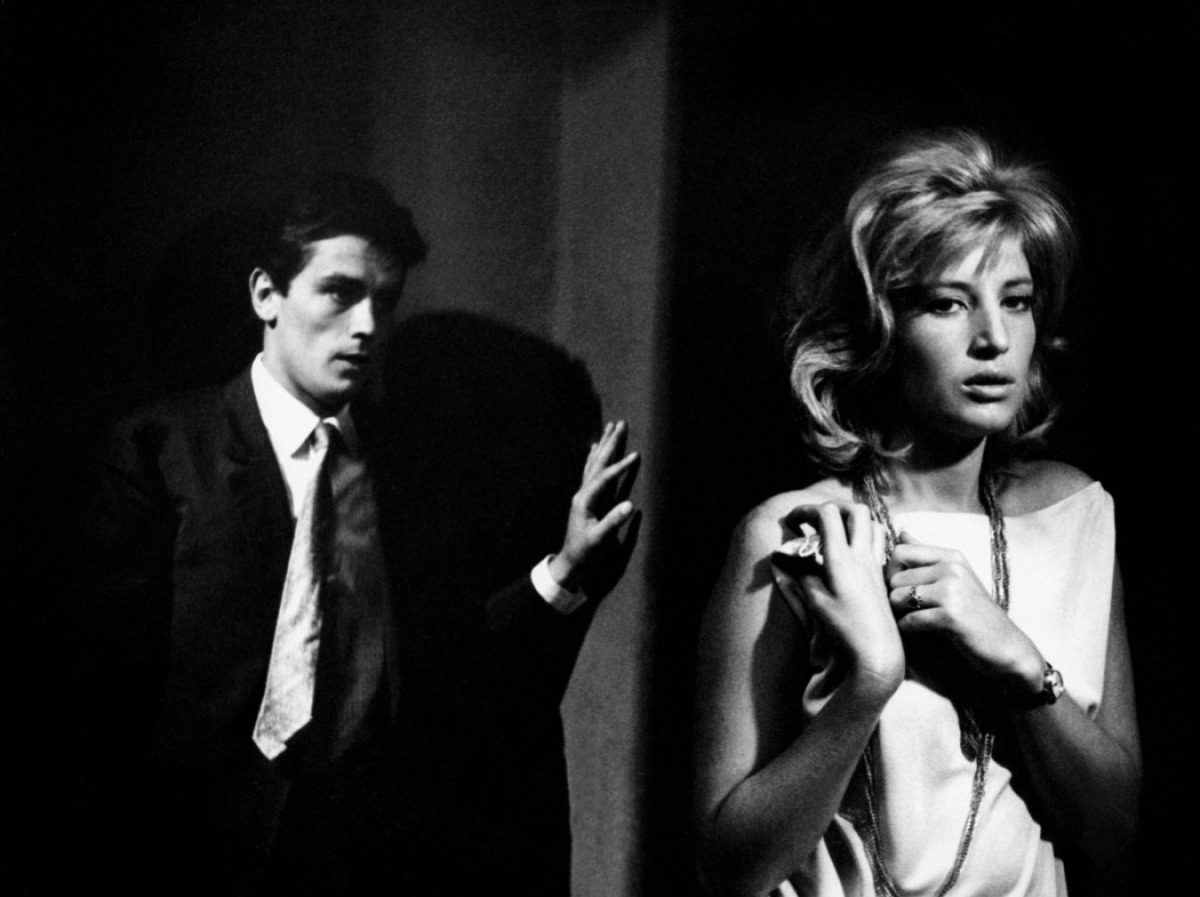The Eclipse

L’Eclisse
Michelangelo Antonioni
Italy – 1962

Screenplay: Michelangelo Antonioni, Tonino Guerra, Elio Bartolini, Ottiero Ottieri
Cinematography: Gianni Di Venanzo
Production: Cineriz Interopa Film Paris Film
Language: Italian, English
Duration: 125 min
Color: Black and White
Synopsis: After a long night of quarrelling, Vittoria breaks off her engagement with the writer Ricardo. She no longer loves him, but cannot say why; he does not want her to go, but cannot think of any convincing reason why she should stay. At the Roman Stock Market, Vittoria’s mother is addicted to trading and spends the better part of her days monitoring her stocks. When Vittoria visits her at the trade center, she meets Piero, a motivated and handsome young stock broker. They are physically attracted to each other, and Piero ends up pursuing her doggedly. When the market suffers a crash, he seeks compensation in her embrace. During their burgeoning physical relationship, they tell each other one thing, but their monosyllabic everyday interactions suggest differently.
Notes:
Antonioni is among the few directors who, like Eisenstein, force a correspondence between a renewed concept of the world and the new technological methods that express and reveal it. For him, cultural and artistic phenomena are founded on techno-scientific practices and the connections established between the two are such as to define the results of film and ideology. Not by chance, he is the first director to shoot a film entirely with the television camera, thereby offering a concrete example of the theories of Teige and Eisenstein. Teige asserted that by basing filmmaking on technical and scientific progress, one can arrive at a total revolution of cinematographic production: “All unknown visual fields, the white dots on the map of knowledge and of intuition, will then be open and unveiled. A perfect mastery, a refined and ingenious use of technical achievements will bring us to the renewal of this art.” Eisenstein asserted that “The expressive possibilities of the cinema are infinite. I am convinced that we have barely penetrated them. Ever new [technological] problems advance toward us.” Antonioni believed that technological progress will “produce the most violent and profound modification of our perceptual and representational modes … our social relations; it will force a sudden senility not only on the cinema but also on the other arts.” For Antonioni, then, one might say that poetry walks hand in hand with technology.
At the time of its release in 1962, L’Eclisse elicited two main reactions from critics: some were disappointed by the absence of visible class conflict, and accused Antonioni of reducing his film world to the feelings and interior states of his decadent, bored bourgeois characters. For them, Antonioni was offering descriptions rather than social critique, embracing a kind of apolitical formalism. Then, there were those who considered the film a call to action, a depiction of the total tedium awaiting the mindless inhabitants of contemporary neo-capitalist cultures. With its scathing portrait of the Roman Stock Market, its loveless characters, and its ominous finale, the film was a “crescendo of reification,” a stern warning complete with a Cold War era preview of the nuclear holocaust that threatened to eclipse everything and everyone, reducing their little egoistic materialisms to dust.
Notes based on Aristarco, Guido. “Notes on Michelangelo Antonioni.” Film Criticism 9, no. 1 (Fall 1984): 4-7. and Esposito, Joan. “Antonioni and Benjamin: Dialectical Imagery in Eclipse.” Film Criticism 9, no. 1 (1984): 25-37.


